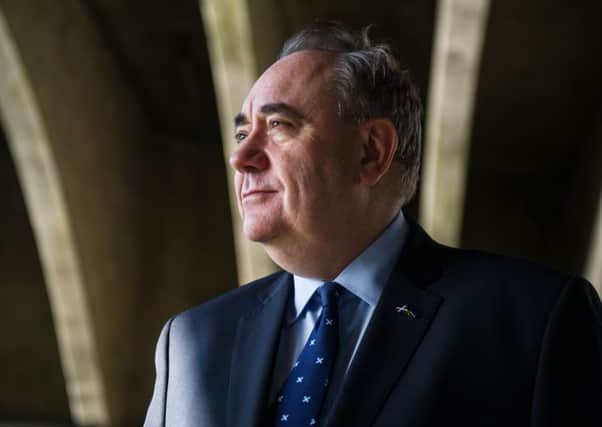Ian Swanson: The game's afoot, but will players all want to join in?


The former First Minister is now predicting a fresh referendum in autumn next year and is confident this time the vote will go in favour of independence.
The poll, which showed 49 per cent for Yes and 51 per cent No, is seen as an indication of Scotland’s reaction to the “hard Brexit” sought by Theresa May.
Advertisement
Hide AdAdvertisement
Hide AdIt’s only one poll, of course, and analysts will want to see similar findings in other surveys before declaring any definite trend.
Nonetheless it was a boost for the SNP and its allies after a run of polls suggesting the shock of the Brexit vote had failed to spark a surge in support for independence.
But is it enough to persuade Nicola Sturgeon to call a second referendum? It was previously said the First Minister wanted evidence of sustained 60 per cent support for independence for at least six months before triggering another vote. Clearly that position is some way off. Is the naturally cautious Ms Sturgeon ready to gamble all without the certainty of success?
Some say she has talked up the idea so much – repeatedly saying another referendum is “highly likely” – that it is now difficult for her not to call one.
Advertisement
Hide AdAdvertisement
Hide AdIf she does decide to go for it, there are hurdles along the way – not least the need for Westminster to agree to a referendum.
The SNP argues that Theresa May could not realistically refuse a second referendum. And Scottish Tory leader Ruth Davidson, while firmly opposed to another vote, has said the Prime Minister should not block it. But when Defence Secretary Sir Michael Fallon was asked if the UK Government would facilitate a new independence poll taking place, he said: “No, forget it.”
More likely, talks about a new Edinburgh Agreement – the deal which paved the way for the 2014 referendum – would see Mrs May and her colleagues trying to lay down tougher conditions than last time.
Instead of a referendum in autumn next year, as Mr Salmond suggested, they could try to force one earlier, leaving the Yes campaign less time to build its case. Or they could even propose a third option – some version of devo max – which could scupper the chances of an independence victory, though it would be a major leap for the Tories to embrace such a proposal. A new referendum would certainly pose major problems for the No camp. Labour suffered for its readiness to work with the Tories in the Better Together campaign in 2014 and the parties might well prefer to stick to their own separate campaigns next time – despite the fact referendums are structured on the assumption of umbrella organisations for each side of the argument.
Advertisement
Hide AdAdvertisement
Hide AdYes campaigners will have to answer many of the same questions they faced last time – on currency, pensions and, ironically, the EU.
But with Labour at UK level in disarray, the pro-independence campaign will be able to benefit from the prospect of perpetual Tory government at Westminster and the apparent disregard by Mrs May of Scottish opinion on Brexit.
Ms Sturgeon may not have made up her own mind yet on whether it’s time for a new vote. But she will be awaiting the next poll results with interest.